Reading readiness Alphabet Worksheets for Ages 5-6
7 filtered results
-
From - To
Jumpstart your child's reading journey with our "Reading Readiness Alphabet Worksheets for Ages 5-6." These engaging printables are crafted to enhance letter recognition, phonemic awareness, and early reading skills. Designed for young learners, our worksheets feature fun activities such as tracing, matching, and coloring, which keep kids entertained while they learn. Encourage your child to explore the alphabet, develop fine motor skills, and build a strong foundation for reading. Perfect for preschool and kindergarten students, these worksheets offer an interactive and effective approach to mastering the ABCs. Download now and watch your child’s reading confidence soar!
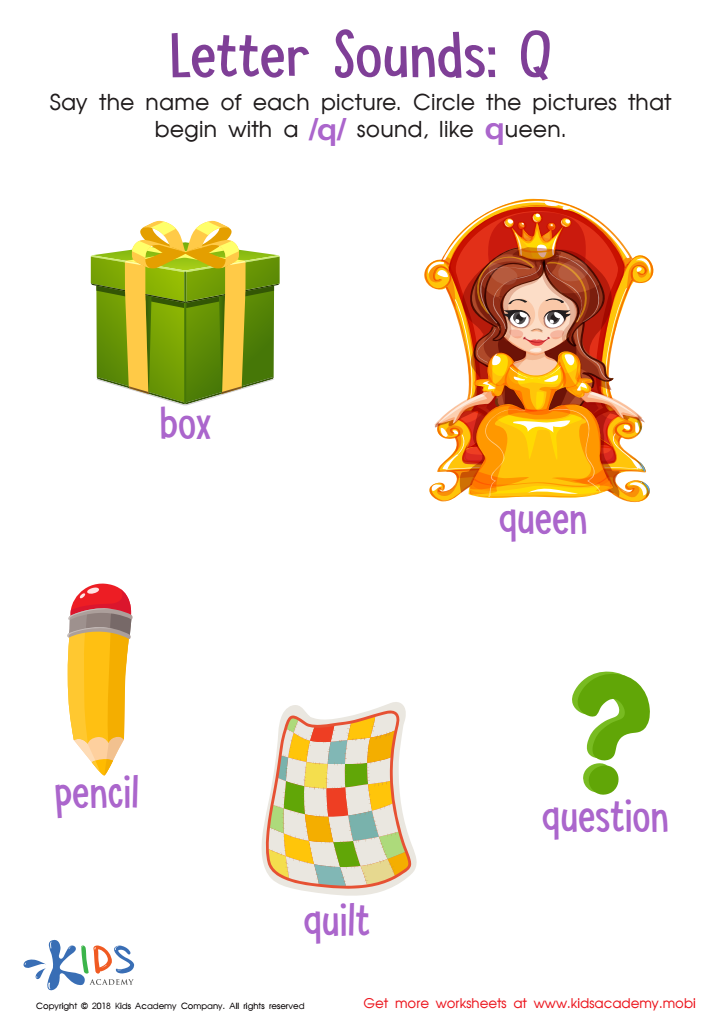

Letter Q Sounds Worksheet
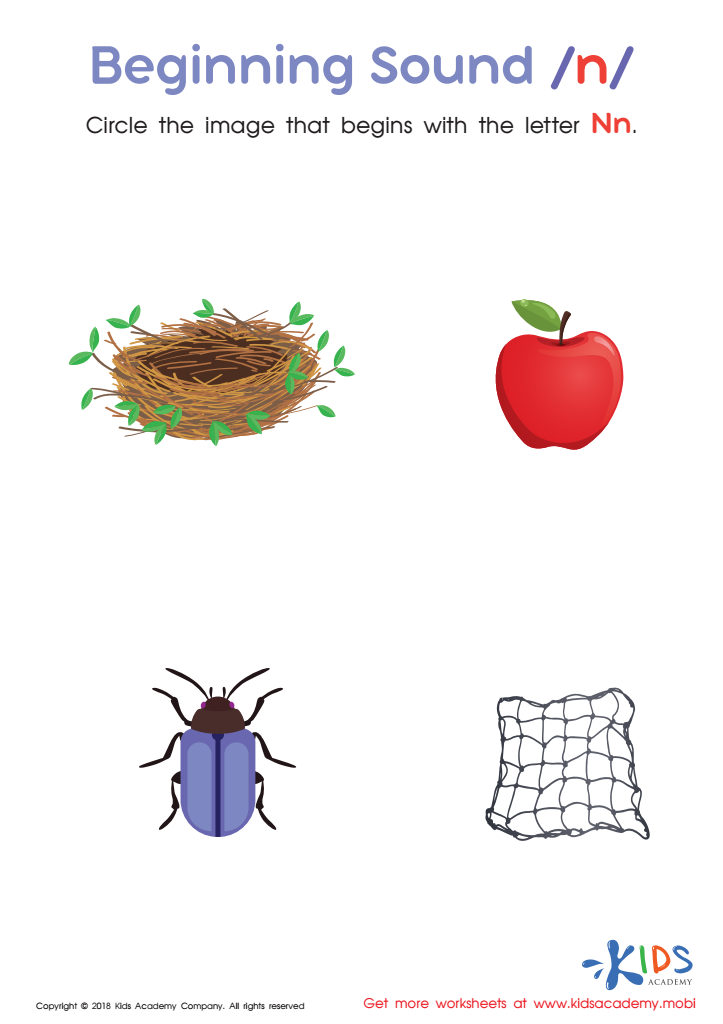

Beginning Sound «n» Worksheet
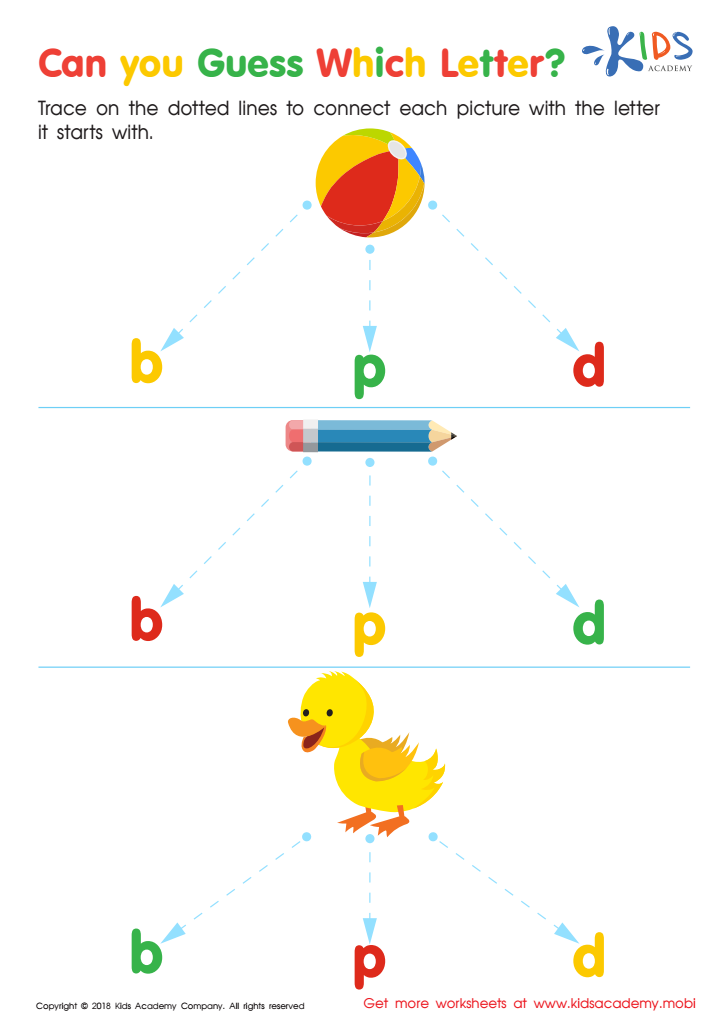

Can you Guess Which Letter? Worksheet
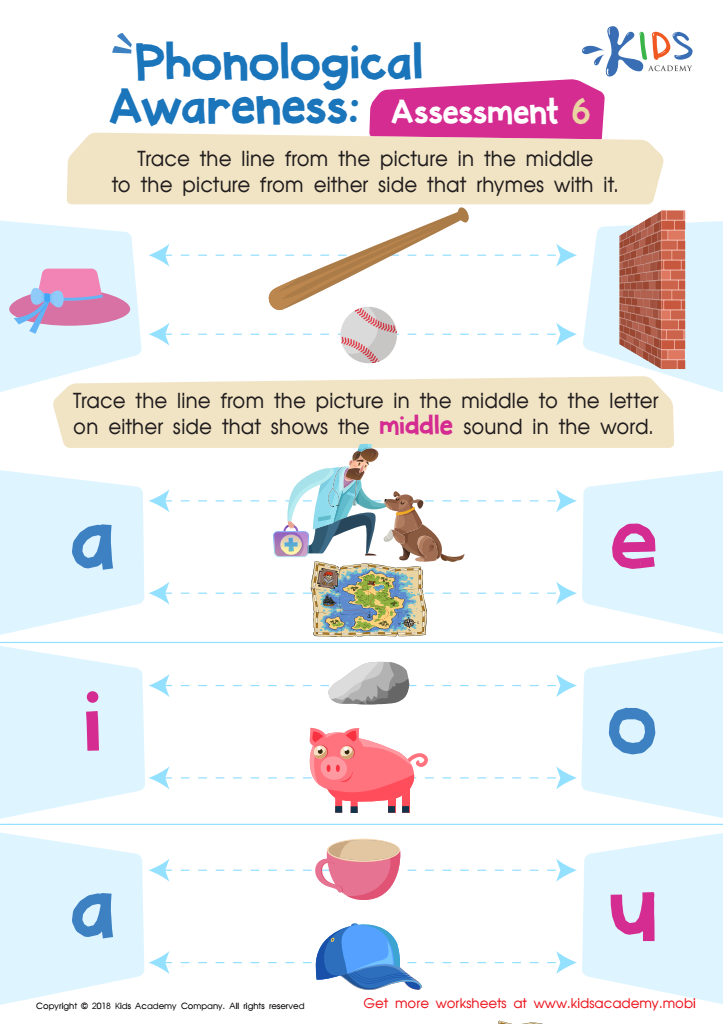

Phonological Awareness: Assessment 6 Worksheet
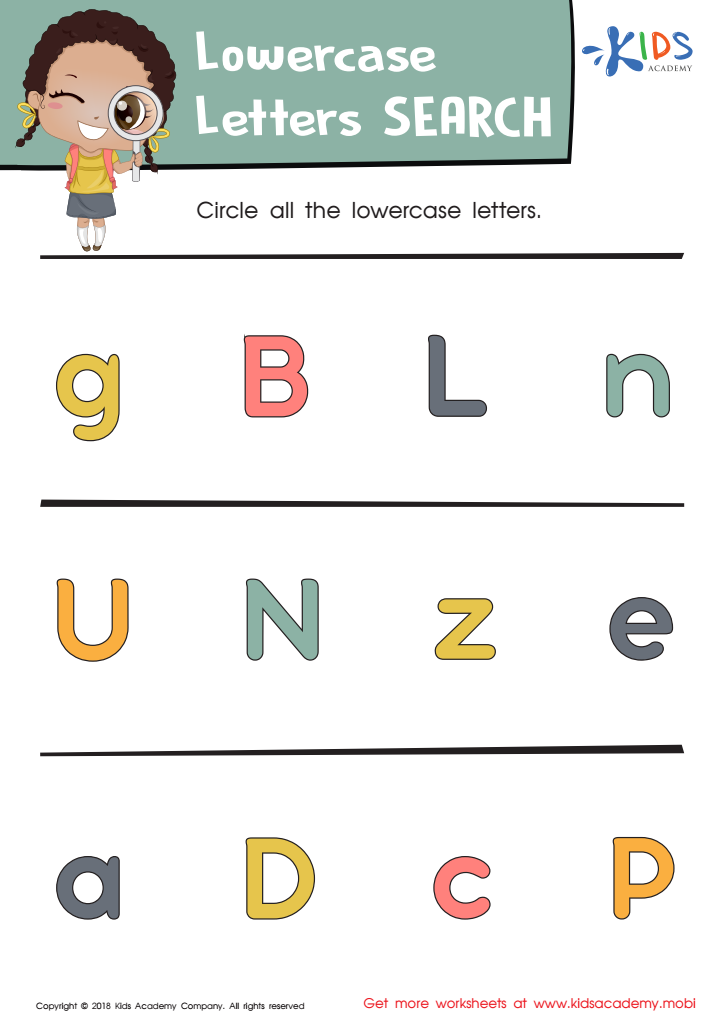

Lowercase Letters Search: Assessment Worksheet


Phonological Awareness: Assessment 1 Worksheet
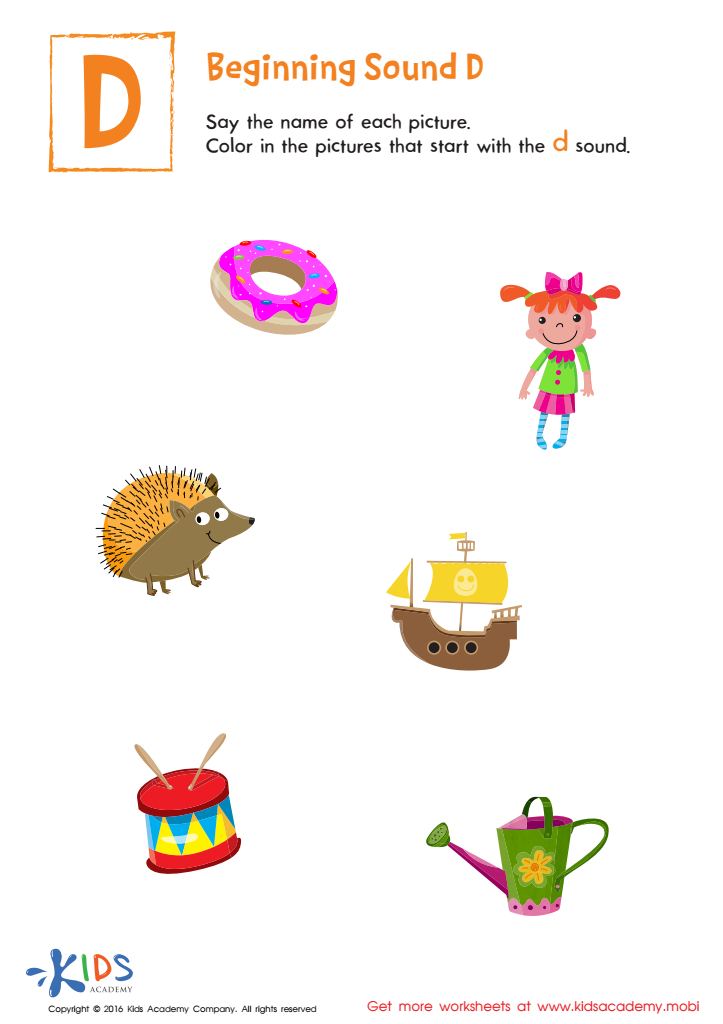

Beginning Sound D Worksheet
Reading readiness is a critical foundation for children's academic success, especially for ages 5-6. This stage prepares them to fully embrace the learning process, particularly in literacy. Teaching the alphabet is a key component of reading readiness, as it introduces children to the letters and sounds that form words.
Parents and teachers should care about reading readiness for several reasons. Firstly, recognizing letters and their corresponding sounds is essential for developing phonemic awareness, a crucial skill for reading fluently. When children understand the alphabet, they can more easily decode words, boosting their confidence and interest in reading.
Moreover, early literacy skills have a substantial impact on a child's future academic performance. Studies show that children who enter first grade with strong reading readiness are more likely to succeed in school and develop a positive attitude toward learning.
Engaging children with fun and interactive alphabet activities can also enhance their cognitive development, improve memory, and foster creative thinking. Encouraging this learning at ages 5-6, when children are naturally curious and eager to explore, sets a solid pathway for continuous educational growth.
In summary, focusing on reading readiness and the alphabet at an early age equips children with essential skills, making their educational journey smoother and more successful.

 Assign to My Students
Assign to My Students



















